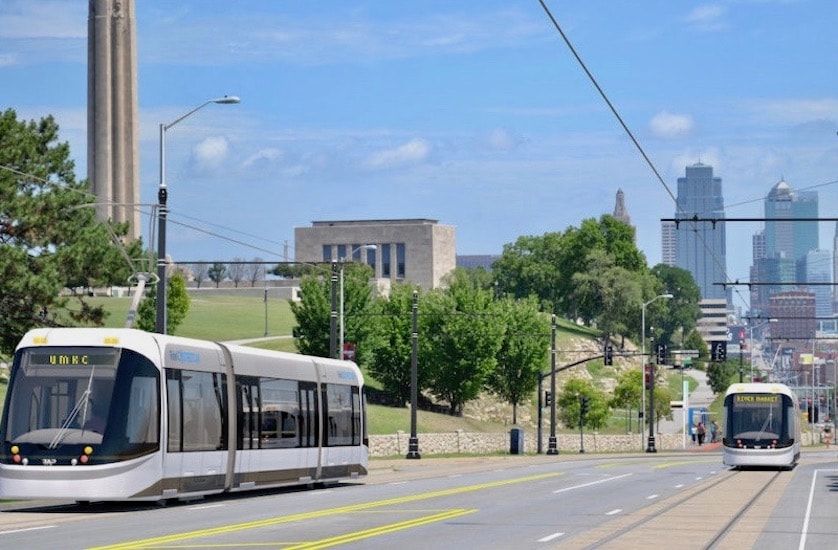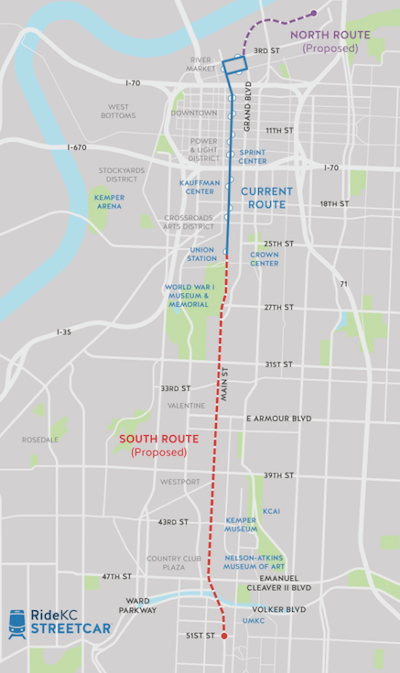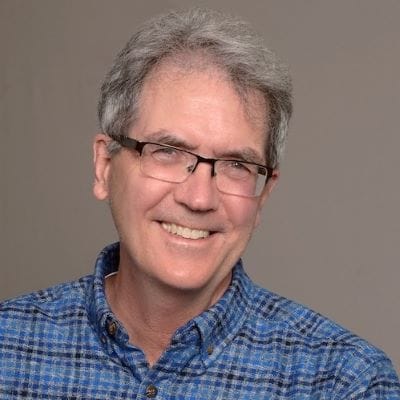Streetcar Extension Cost Up $66 Million in Fed Funding Application

Published September 11th, 2018 at 12:15 PM
By Kevin Collison
The cost of extending the streetcar from downtown to UMKC has increased to $316 million, up 26.4 percent from the previous $250 million estimate, according to an application for federal funding submitted last week by the Kansas City Streetcar Authority.
Much of the increase is related to policy changes in Washington, streetcar officials say, including requiring a larger embedded risk contingency in the budget, potential price increases due to tariffs and stiffer, more costly Buy American requirements.
The higher cost of inflation and labor also are a factor.
“Over the past year or two, bids are coming in higher in our industry leading to market uncertainty and heightened risk,” said Tom Gerend, executive director of the authority.
“The Federal Transit Administration is saying you need to account for more contingency to manage that risk.”
He emphasized that while the federal ask has grown from $100 million to $151.6 million in the application, the local funding share has remained at $165 million. The scope of the project also is unchanged.
“The good news is the approved TDD (Transportation Development District) is sufficient to fund the local share, no additional local money is required,” Gerend said.

The estimated cost of the proposed South Route streetcar extension from downtown to UMKC is now $316 million.
Gerend estimated $105 million or 33.2 percent of the new streetcar extension budget covers the contingencies required by the feds.
The jump also means the Kansas City streetcar extension project is competing for funding in a different federal transportation program. Its application is now in what’s called the “New Starts” program which covers projects over $300 million.
While the competition now will be with some heavyweight rail projects including subway and light rail proposals in major cities, the New Starts program does provide more generous federal participation.
The previous “Small Starts” program for projects below $300 million had a $100 million federal cap. The New Starts program has no set limit to federal aid and a 50/50 target is common.
“We think our evaluation and application will compete favorably with projects across the country,” Gerend said. “We’ll be up against billion and billion and a half dollar projects, legacy systems.
“We think there’s a sweet spot for lower end of the New Start program.”
The next step will occur this winter when the streetcar authority learns how its application request has been rated by federal transportation officials. That will establish its priority for federal funding.
“The program has had strong Congressional support, although the administration has been slow to add new projects,” Gerend said.
“We think we’ll get a strong rating, which would allow our Congressional delegation to persuade the administration to add the project.”
Gerend also observed Kansas City has not been in the hunt for rail transit funding while cities including Denver, Minneapolis and Dallas have received hundreds of million of dollars in federal assistance.
“We have not procured our fair share of resources over the years,” he observed.
The strength of the local funding component in Kansas City also should help lobby for help in Washington, Gerend believes.
The relatively unique TDD approach used in Missouri, in which a district is established that raises money from increased sales taxes and property taxes along the route, has impressed cities around the country.
“They (federal officials) are using our downtown project as a unique way to generate local funding as a best practice around the country,” he said.
If things go well in Washington, the streetcar authority would like the Main Street extension project included in the 2020 federal budget. That would allow for a construction start in 2021-22 and the new service in operation by late 2023.
Don’t miss any downtown news, sign up for our weekly CityScene KC email review here.


